- Home
- Addiction & HIV/AIDS
Addiction & HIV/AIDS
Addiction can cause individuals to engage in a wide variety of risky behaviours.
These behaviours can increase the chance of developing HIV or passing it on to others.
Having sexual contact without using a condom or sharing needles can increase the risk of transmission.
Abusing drugs affects the brain and alters the ability to make good judgements and decisions.

When you are intoxicated your inhabitations are lowered, meaning you are far more likely to make risky decisions that place you at risk of developing or transmitting HIV.
Examples include not using a condom when having sex, having difficulty using a condom correctly, having multiple sexual partners or abusing drugs.
All of these behaviours increase the risk of developing HIV or spreading it to others if you already have the virus.
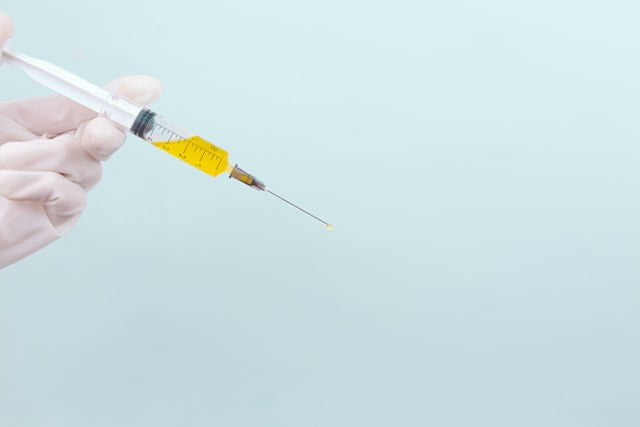
If you abuse drugs intravenously, you are at a far greater risk of transmitting HIV to others as well as hepatitis B and C if you share your needles or equipment.
This is because needles and drug paraphernalia can carry blood with HIV.
You should never share needles with anyone, even if you are inserting silicone, steroids or hormones.
Continued substance use can be detrimental to the health of a person with HIV because drug and alcohol abuse can further damage the immune system and organs in the body.
For those living with HIV, addiction can quicken disease progression and affect antiretroviral therapy, overall worsening the consequences of the virus.
If you have been diagnosed with HIV and a substance use disorder, reach out for support from Rehab Recovery today by calling us on 0800 088 66 86.
What Is HIV?

HIV (Human Immunodeficiency Virus) is a virus that damages the cells of the immune system.
This means it is incredibly difficult for an individual with this virus to fight diseases and infections.
It is transmitted through bodily fluids, either by having unprotected sex with someone who has HIV or through sharing a used needle.
When someone becomes exposed to the virus their white blood cells, most notably, the CD4+T cells, become infected.
These T cells are very important in the function of the body and help to keep the immune system operating to the best of its ability.
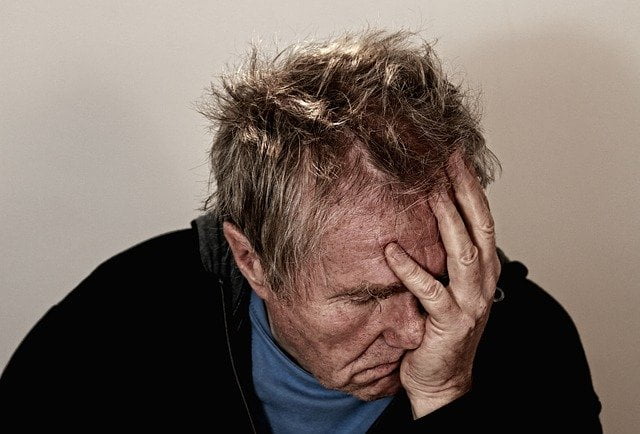
Without them, the acute phase of the infection begins where patients experience severe flu-like symptoms for around 2 weeks.
After this, the chronic stage begins which can last several years.
During the chronic stage, the virus replicates and stimulates an immune response.
The body attempts to recreate the lost cells, but these also become infected. After time, the immune system is so damaged that T cells cannot be supplied anymore.
When an individual cannot produce enough T cells, the immune system is unable to respond and is considered below the immunological threshold.
Once in this threshold, a patient will be diagnosed with AIDS.
AIDS

AIDS (Acquired Immune Deficiency Syndrome) is the name used to refer to a variety of life-threatening infections and subsequent illnesses that happen when the immune system is damaged by HIV.
With effective treatment, the chronic stage of HIV can now be extended for many years.
There is no cure for HIV, however there are lots of drug treatments that help people diagnosed with the virus to lead healthy and happy lives.
With effective treatments and an early diagnosis, AIDS can be prevented and those with HIV can live a normal lifespan.
Why Is Substance Abuse Connected To HIV?

Substance abuse refers to the misuse of both illegal drugs and prescription or legal medicines.
Substance abuse is very closely linked to HIV in multiple ways because:
- Using recreational drugs or drinking alcohol can lead to an individual partaking in risky behaviours that increase the chances of HIV transmission. Recreational drugs refer to both injected and non-injected substances such as heroin, methamphetamine, cocaine and cannabis.
- Many prescription drugs can also be abused and result in risky behaviours if used inappropriately.
- Continued substance use can severely harm the health of an individual with HIV. This is because drugs and alcohol weaken the immune system.
- When intoxicated, many people make poor decisions or behave in risky ways such as having sex without protection or sharing needles. This results in the transmission of HIV which can develop into AIDS.
How Does Substance Abuse Affect An Individual With HIV?
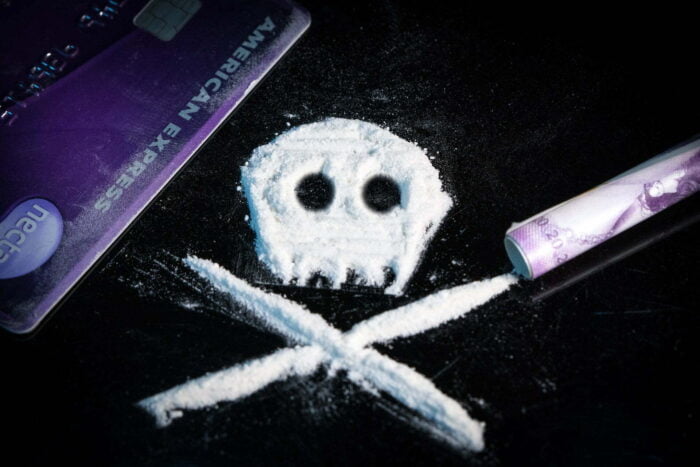
Drugs and alcohol weaken the body both physically and mentally.
This makes it very challenging for the body to fight infection and illness.
Many people with HIV often find that the virus worsens very rapidly due to drug and alcohol abuse.
Substance abuse also damages the liver, making it incredibly hard to break down and remove harmful toxins in the blood.

A build-up of toxins can lead to a weakened body and liver disease.
Many recreational drugs also interfere with HIV medication, increasing the risk of dangerous and often life-threatening side effects.
Many overdoses have been reported by people who take HIV medication and illicit substances such as MDMA.
Having a substance use disorder makes it very challenging for those with HIV to take their prescribed medication.
HIV medication must be taken as part of a daily routine.
Skipping doses or stopping all consumption of medication to take recreational drugs can instantly weaken the immune system, causing serious illness and even a risk of death.
Commonly Used Drugs And The Risk Of HIV
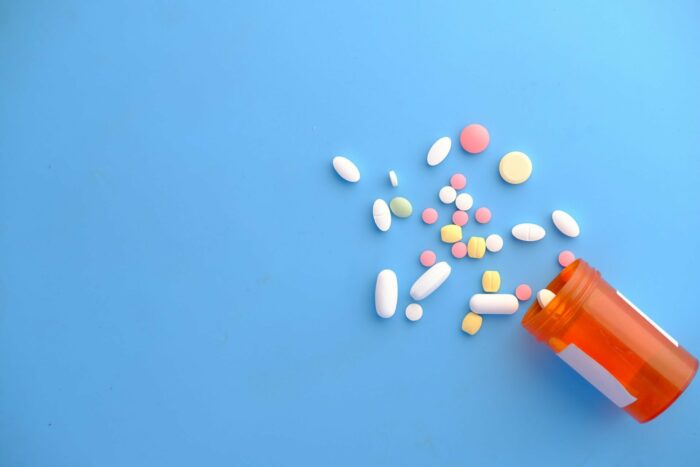
Whilst any form of drug abuse can be detrimental to a person with diagnosed HIV, there are certain substances used far more regularly than others.
These are as follows:
Inhalants

These substances are known as ‘poppers’ and have been linked to very risky sexual behaviours and increases in sexually transmitted infections.
Poppers appear as a liquid chemical and are sold in a very small bottle that is sniffed.
They produce a very quick head rush and result in feelings of euphoria and arousal.
Because poppers increase blood flow to the body, they can cause headaches, nosebleeds and pain in the chest area.
Sniffing poppers can be incredibly dangerous, especially for those with heart problems, and continued usage can also result in eye problems.
Methamphetamine

Methamphetamine, most commonly known as ‘meth’, is a substance that can be swallowed, injected, or snorted.
Smoking the drug in its crystal form produces very intense highs that result in feelings of exhilaration or arousal.
Meth is a very addictive substance that increases the chances of an individual engaging in risky sexual behaviour.
It can also lead to psychosis as well as heart attacks and strokes.
Alcohol

Extreme alcohol consumption can result in binge drinking which is incredibly harmful to any individual.
Alcohol is considered a danger to those with HIV as it is linked to risky sexual behaviour and can damage the outcome of someone treating HIV through medication.
Many people with HIV who drink alcohol often forget to take their medication, which can be incredibly harmful to their health.
Excessive drinking can also lead to a wide variety of problems such as liver and heart failure.
Opioids
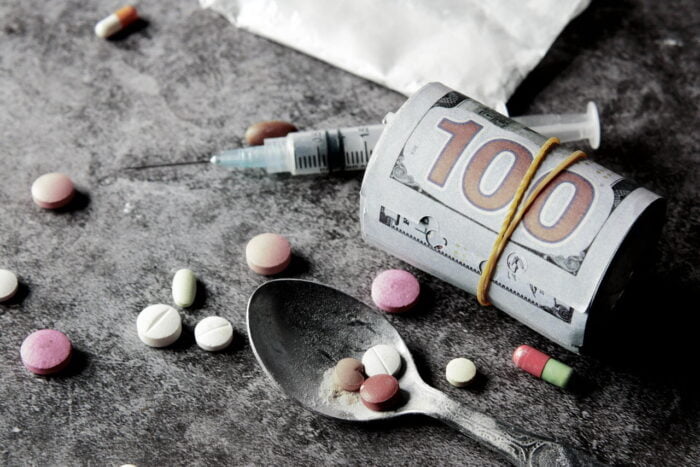
Opioids refer to both illegal and prescription drugs that are used to relieve pain.
This class of drugs is considered a very high risk to an individual with HIV because the chances of needle sharing and risky sexual behaviour are increased.
Opioid abuse has also been linked directly to a recent outbreak of HIV.
Those with HIV are far more likely to use opioids in an attempt to manage their pain.
This puts them at increased risk of developing opioid use disorder which can be very difficult to manage.
However, help is available, and we urge you to contact our team today if you require support.
Crack Cocaine
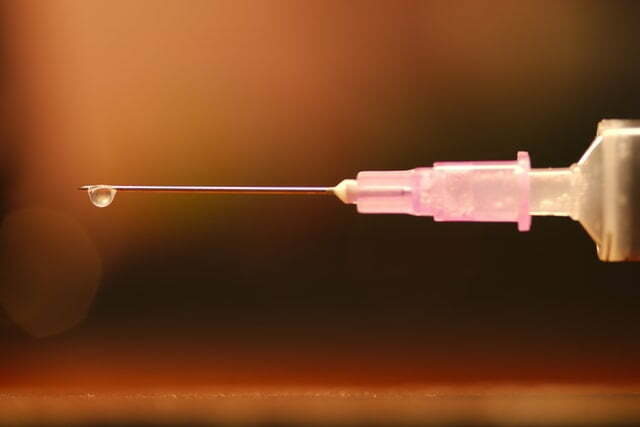
Crack cocaine appears as small lumps or rocks and is smoked through a pipe or in foil.
Taking this substance can make an individual feel very euphoric, however, it results in wide complications that can be fatal to a person with HIV.
Crack cocaine can create a very dangerous cycle for someone with an addiction.
This is because the substance is so highly addictive and therefore causes people to partake in risky behaviour to obtain more.
Risky behaviour could include trading sex for money or other substances. which increases the risk of HIV transmission.
What Are The Symptoms Of HIV?

HIV is a sexually transmitted infection (STI).
Most people experience a flu-like illness around 2 to 6 weeks after the initial infection.
These symptoms last around 7 days to 2 weeks and can include:
- Fever
- Headache
- Muscle aches
- Joint pain
- Rash
- Diarrhoea
- Swollen glands
- Dramatic weight loss
- Sore throat
- Sweating
- Persistent cough
Although these symptoms then disappear, the virus lives often unnoticed in the body for many years whilst simultaneously damaging the immune system.

This makes it very difficult for an individual to know that they have HIV unless they get tested.
If you think you could have HIV you should get tested immediately.
Some people are advised to get tested far more regularly as they are at a higher risk of developing the virus.
People who are most at risk are:
- People who have a current or previous partner with HIV.
- People who are from an area with high rates of HIV.
- People who inject drugs or share drug-related paraphernalia or equipment.
- People who have sex with people who inject drugs or share equipment.
- People who have been sexually assaulted.
- People who have recently received a blood transfusion or any other medical procedures in a country where HIV screening is very low.
- Those who work in a healthcare setting where they could possibly infect themselves with an infected needle.
- People who partake in chemsex (using illicit substances like inhalants or crystalised methamphetamine to enhance sex).
- Babies whose parent has untreated HIV.
- Men who have unprotected sex with men.
- Women who have unprotected sex with men who have sex with men.
Breaking The Cycle Of Addiction

Substance abuse can cause many problems in an individual’s life.
It can increase the risk of developing HIV in those who may have been previously healthy, and also result in fatalities for those already diagnosed with the virus.
Continued abuse of drugs and alcohol can lead to a very weakened immune system and a decrease in the effectiveness of treatment methods.
For individuals with HIV and AIDS, a substance use disorder can play a key role in the worsening of the disease and significant increase in related infections.

Although there is no cure for HIV and Aids, patients can still enjoy a high quality of life.
If you are struggling with addiction, we urge you to reach out.
By contacting Rehab Recovery today, we can help to source local addiction treatment in your area.
Through a comprehensive drug and alcohol treatment programme, you can detox safely under medical supervision at all times.
Your physical and mental health is always considered a priority and you will be given support both night and day.
Rehab can help you to overcome all physical and psychological dependencies in a nurturing and safe environment.

Through a combination of detoxification and therapy, you can overcome your addiction and enjoy a life free from the clutches of drugs and alcohol.
To begin your rehab journey with us, call us today on 0800 088 66 86.
We can begin your pre-admission assessment completely free of charge.
All calls are confidential, and we never pass on your information without consent.
We know that making that first step can be hard, but a life without drugs and alcohol is possible.
If you’re ready to begin your rehab journey, reach out today and choose Rehab Recovery.


